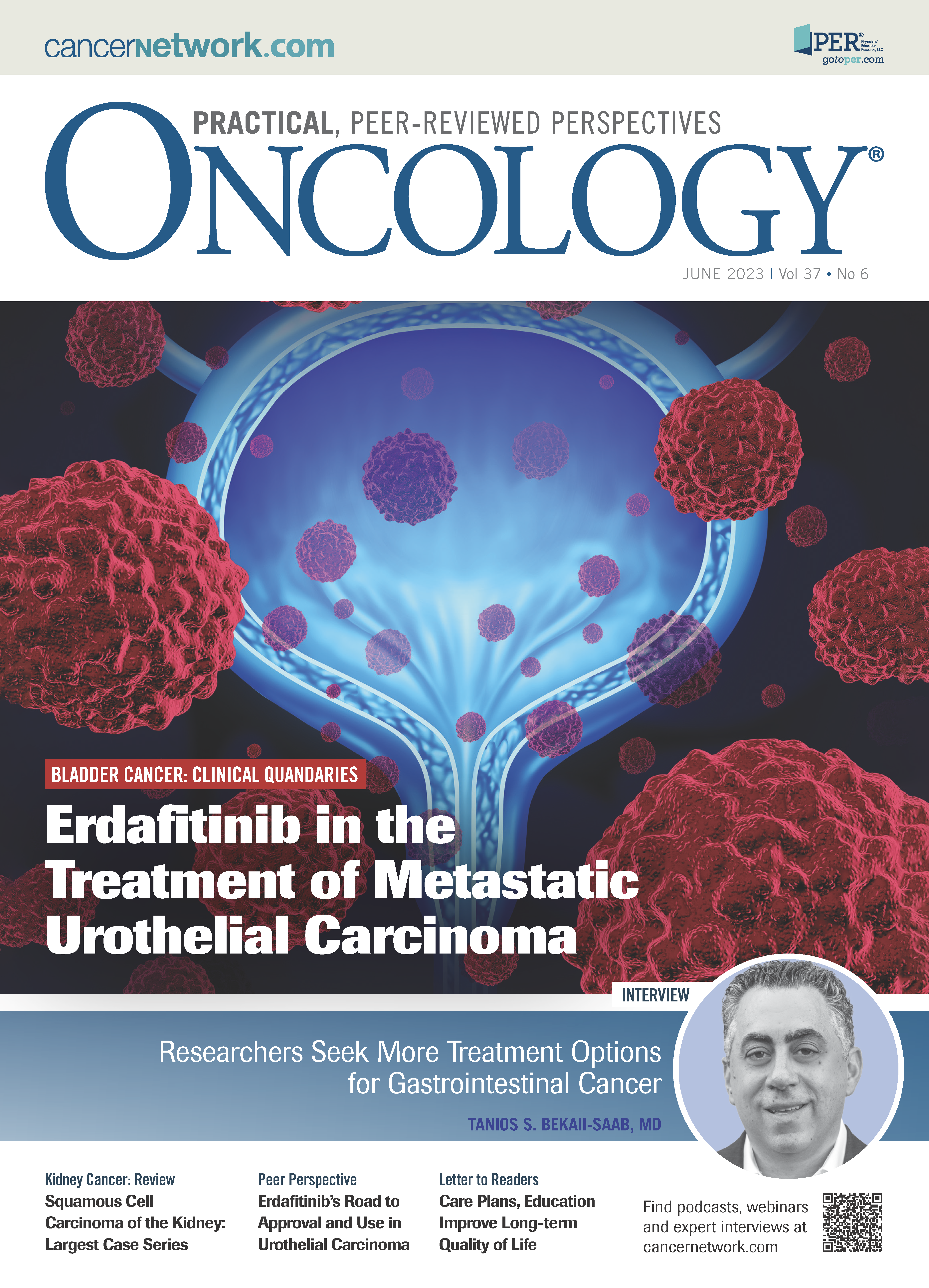Care Plans, Education Improve Long-term Quality of Life
Co-editor-in-Chief Julie M. Vose, MD, MBA, writes about the optimal ways to manage short- and long-term toxicities associated with cancer.

With 1 in 3 individuals receiving a cancer diagnosis sometime during their lifetime, we all are likely to experience cancer ourselves or to have a relative or close friend with cancer. Fortunately, there have been vast improvements in treatments and care for patients with cancer. But with those successful treatments often come short- and long-term toxicities that must be managed.
In 2006, the Institute of Medicine and the National Academies established a committee to examine the range of medical and psychosocial issues faced by cancer survivors needed to improve their health care and quality of life.1 The committee set out 10 recommendations that fit into 4 broad categories: prevention, surveillance, intervention, and coordination.1 One big part of the recommendations was that each patient who had received cancer therapy should receive a survivorship care plan written by the team providing the cancer care. These plans should be developed systematically and on evidence-based clinical practice guidelines, the committee noted. Many of these plans have been developed as a shared-care model in which specialists work collaboratively with primary care providers. This model is likely the most successful because much of the cancer survivor’s health care is provided by their primary care network.
In addition to evaluations for cancer recurrence, services are needed for cancer screenings and evaluation of secondary effects such as organ dysfunction or secondary malignancies. Educating patients on primary and secondary prevention services, such as smoking cessation or regular cancer screening tests, is an important part of cancer survivorship. Cancer survivors also should receive additional lifestyle education such as how to maintain a healthy weight or increase activity. Some vital issues that are difficult to address include the need for services from psychologists or social workers. Even though the American Disabilities Act, has offered cancer survivors some protections from discriminatory practices, there are still many cases of health-related discrimination. Survivorship is an essential part of cancer care and benefits should be available based on evidence-based medicine.
The written survivorship care plan that is done at the end of active treatment for a patient with cancer does not guarantee a smooth transition or adequate education. It is an outline or road map for the patient, family, and primary care physician to follow. It should be a short, concise document that contains relevant information but does not overwhelm the patient or family. A specialty team trained to deliver the survivorship care plan is particularly beneficial in assisting patients with the transition.
A follow-up national cancer policy forum workshop in 2017 examined the implementation of the 2006 recommendations.2 Although many of the original recommendations have been implemented, some are less universal, such as protections from health-related discriminatory practices.2 Investing in research to improve cancer survivorship also was called out in the recommendations, particularly research on mechanisms of the late effects, prevalence of the risk of late effects, and interventions to improve the quality of life of all cancer survivors, their families, and caregivers. As a community of hematologists/oncologists, we owe it to our patients to not only improve our anticancer therapies but also to decrease the short- and long-term effects of the therapies we recommend for our patients.
References
- Institute of Medicine and National Research Council. From Cancer Patient to Cancer Survivor: Lost in Transition. The National Academies Press; 2005.
- Kline RM, Arora NK, Bradley CJ, et al. Long-term survivorship care after cancer treatment - summary of a 2017 National Cancer Policy Forum workshop. J Natl Cancer Inst. 2018;110(12):1300- 1310. doi:10.1093/jnci/djy176

How Supportive Care Methods Can Improve Oncology Outcomes
Experts discussed supportive care and why it should be integrated into standard oncology care.